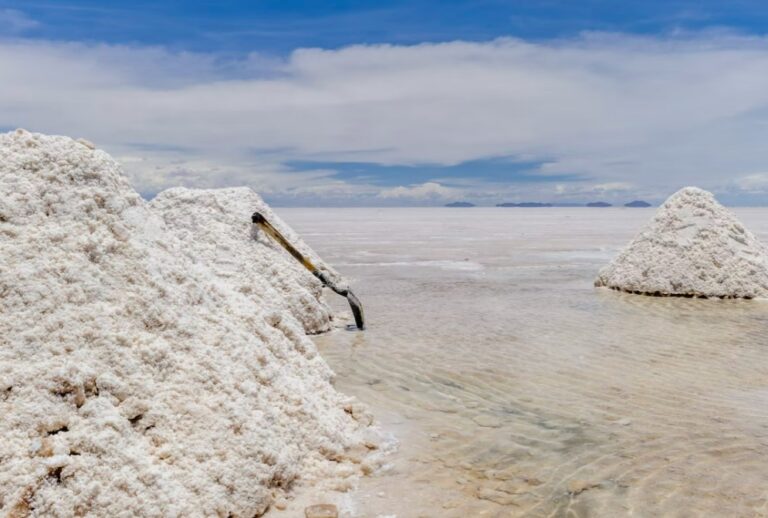Some of the largest oil companies such as ExxonMobil, Equinor and Schlumberger are considering entering the lithium sector to diversify their business beyond fossil fuels and position themselves as major suppliers of a critical metal for the ecological transition.
Lithium is the main raw material for batteries that power electric vehicles and store energy from wind and photovoltaic power plants.
But before taking the plunge, oil & gas companies want to see if their technical expertise in pumping, processing and reinjecting liquids underground can be used in the extraction of lithium from unconventional salt water deposits, or brine.
Table of Contents
Is Lithium, rather than renewables, the obvious choice for oil companies?
Brian Menell, managing director of TechMet, a mining-focused investment fund backed by the US government, told the Financial Times that lithium mining is “a natural progression for oil companies”. ‘Lithium brines are an obvious choice’ for these companies because ‘unlike charging networks [for electric cars, ed] and wind farms, where they have no expertise beyond project management, they are experts in pumping and underground fluids’.
Basically, what Menell is trying to say is that some oil companies want to avoid entering into direct competition with electricity companies. Which are much more experienced in building renewable parks.
Then, in order to preserve their economic centrality in a low-carbon future, they are thinking of converting know-how to the extraction of critical minerals, a sector closer to their core business segment.
What oil and gas companies are doing in practice
As the Financial Times writes, the entry of large oil companies into the lithium market would bring relief to car manufacturers. Who, are engaged in the conversion to electric mobility and are currently dependent, for their raw material supplies, on small mining companies that may not be able to guarantee the huge volumes of lithium required for the ecological transition.
So far, however, oil companies have largely confined themselves to lithium speculation rather than production. They have acquired minority stakes in specialised mining companies, they have offered to license their mining technologies, they have bought some prospecting rights (geological analysis, simplifying) of deposits.
Will the United States become a Lithium superpower?
Direct lithium mining has been used for twenty-five years in Argentina and in some projects in China’s Qinghai province. But it could see massive application in the Permian Basin, the most important oil field in the United States and the world, located between Texas and New Mexico.
According to the consulting firm Enverus, the exploitation of wastewater used in the fracking of just one section of the basin could guarantee a production of 225,000 tonnes of lithium carbonate per year, worth $19 billion.
There are direct lithium mining projects underway in the states of Nevada and Utah and also in Canada, in the oil-producing province of Alberta. Investment in this technology is favoured by both US (contained in the $369 billion Inflation Reduction Act) and Canadian government incentives.
Read also: Clean, unlimited and uninterrupted energy from the air: it is now reality












